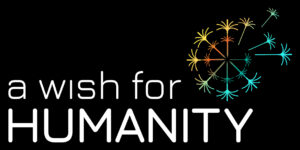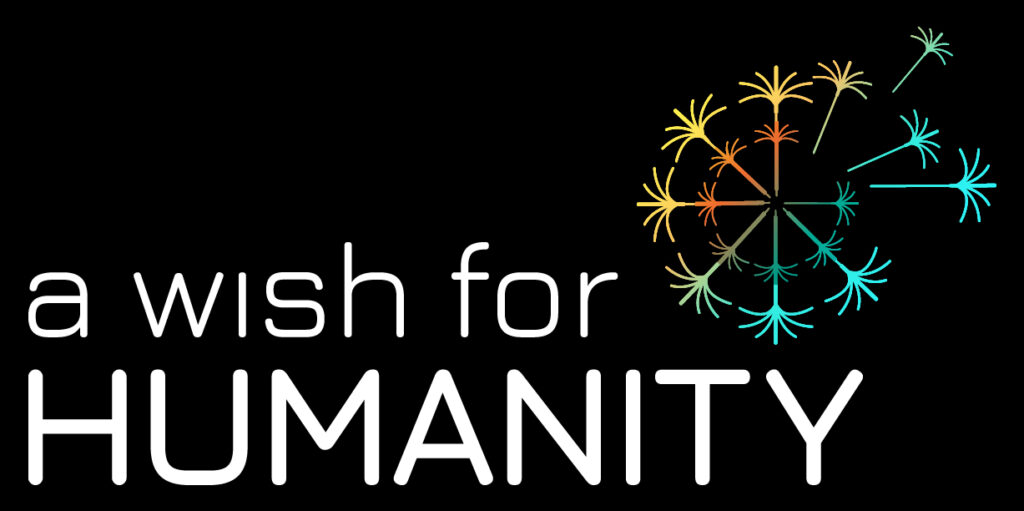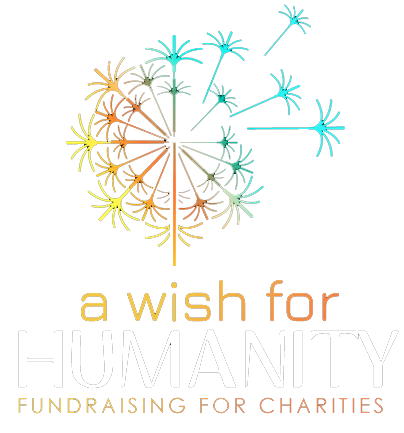

Christina Blecher
Founder of GREENLAMP, Ethiopia
Swedish-born Christina is the Initiator, Co-Founder and President of Greenlamp.
We work hand-in-hand with communities and local authorities to ensure the sustainability of our projects and take an approach of promoting equal opportunities of women and girls, inspired by the African proverb:
«…if you educate a woman, you educate a community».
Our vision is to strive for a bright future for women and girls.
GreenLamp supports community-to-community projects to address preventable harm in maternity by:
LEARN; Funding the training of midwives from poor rural areas to increase the number of skilled birth attendants in underserved areas.
LIGHT; Providing sustainable, reliable solar light and power in health centers to support safe deliveries in rural areas of Ethiopia.
LEAD; Encouraging positive behavioral change by creating conditions whereby mothers want to give birth at the nearest health center. Our projects are also designed to have a positive impact on women’s empowerment and community development by promoting midwives as role models.
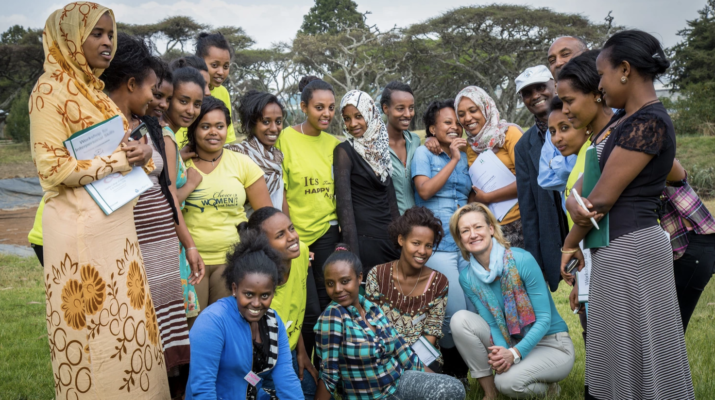
Lisbeth: Please tell us a little about your childhood and where did you grow up? Did you already have a dream of doing humanitarian help at that time?
Christina: I grew up in several different countries in Europe and South America. Living in Peru especially made me reflect on the big differences in living conditions and opportunities depending on where you happen to be born and grow up. Whilst studying in Peru for a year, I volunteered for the Swedish Seamen’s Church that worked on humanitarian projects. The dream of having the opportunity to contribute hands-on in some way again, has lived with me ever since. Starting and working with GreenLamp is fulfilling this dream as well as volunteering with the free Swiss counseling hotline Dargebotene Hand and teaching German to refugees in my community.
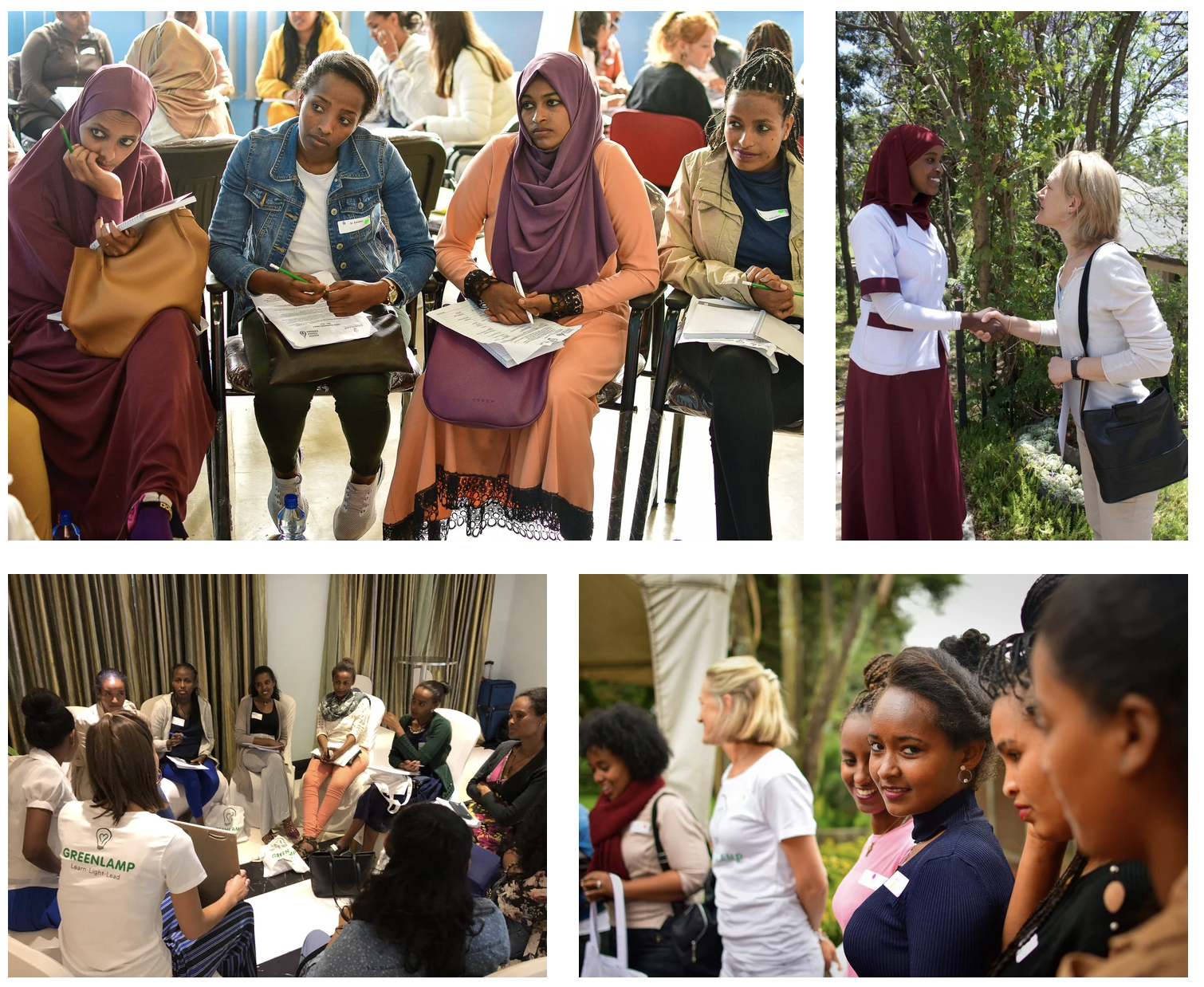
Lisbeth: What inspired you to start GreenLamp? And why the choice of supporting midwives in Ethiopia?
Christina: The inspiration that made me take initiative was the book “Half the Sky – how to change the world” by Nicholas Kristof and Sheryl WuDunn that I had read about in the NYT where Kristof is an Op-Ed Columnist. The book tells the stories of disadvantaged women in the world that have managed to overcome enormous challenges in their lives.
We support midwives because we learned about entirely preventable traumatic birth injuries and deaths in the book. One such injury is fistula, which I previously knew little about. It is a tear in the tissue of the bladder and/or bowels due to a prolonged birthing process that is entirely preventable with a professional diagnosis by a qualified midwife. With such a diagnosis the mother doesn’t have to live as an outcast from her own community because of the smell of the leakage from the bladder and bowels and the baby doesn’t have to die during the birth process.
A midwife is the key person in rural communities where any type of prevention work is vital. They can prevent birth injuries and deaths as well as bring awareness on harmful traditional practices, such as Female Genital Mutilation. Other important services provided by midwives are family planning and advice on nutrition and hygiene.
Lisbeth: How do you start up such an organization? I imagine that it is not an easy task in a country like Ethiopia?
Christina: GreenLamp is a Swiss Charitable Organization and we were founded in the Canton of Zürich in 2012. I knew already from the beginning that I wanted to work towards equal opportunities for women and girls. Living in Switzerland for the last 30 years I have grown close to many fellow Swedish women living in Zürich. As I started discussing my ideas and thoughts after reading “Half the Sky, many of them responded similarly to how I did. We started discussing more concrete ways to make change happen and soon after we created GreenLamp. Since our founding in 2012 we have evolved into an international organization and in our team we have women from many different countries and walks of life. In Switzerland we fundraise and build community awareness and in Ethiopia we initiate and implement projects with our local partners.
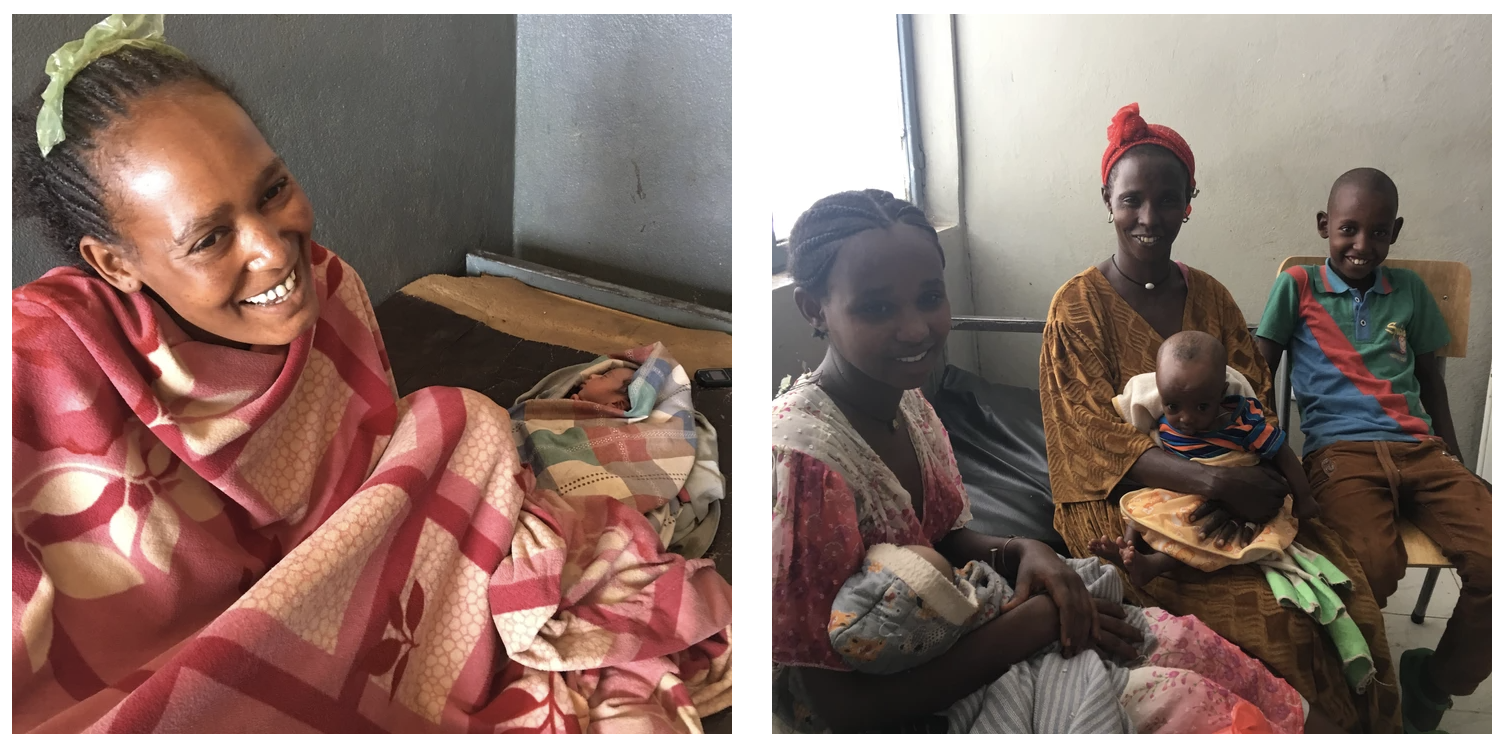
Lisbeth: Please tell us about the most common dangers for mothers and babies during birth giving?
Christina: Postpartum Hemorrhage, PPH, or excessive bleeding after delivery is the most frequent and fatal birth complication. Midwives have told us many traumatic stories of women dying from this during home deliveries. Therefore it is crucial that the midwives do outreach work, where they encourage the women in their communities to give birth at the health centres to prevent any complications. It is also vital that women come for antenatal care so the midwives can determine if they are at risk and need to give birth in a hospital. Ambulances are extremely unreliable in rural Ethiopia and therefore planning a hospital birth can be life-saving.
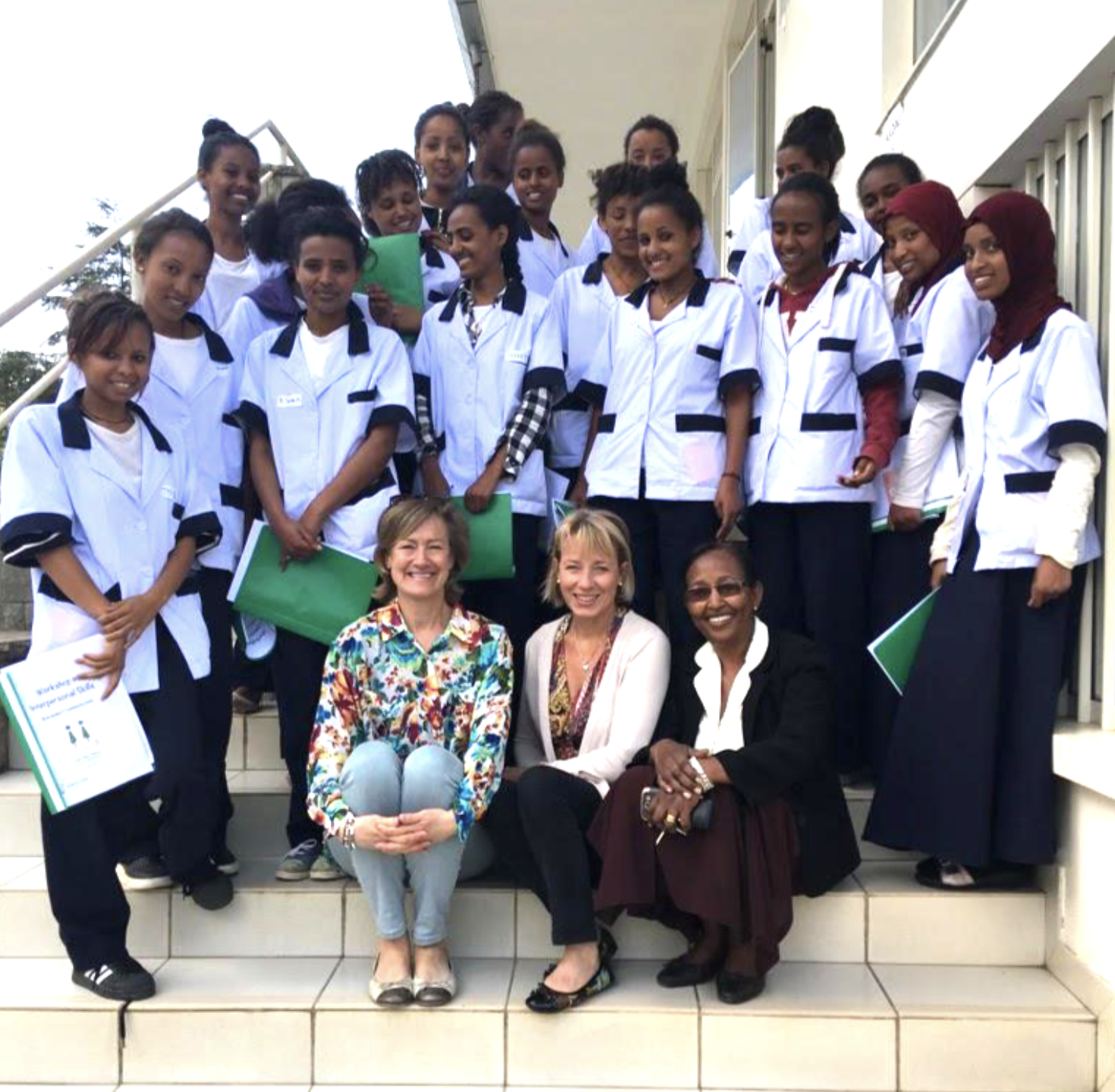
Lisbeth: Tell us about the midwives that you train? Where do they come from and how do you select them?
Christina: All the midwifery students are recruited from rural and remote parts of Ethiopia. They go through a selection process to ensure that they are committed and passionate about supporting mothers and children in the rural communities. Highschool grades, an aptitude test and a personal interview are all part of the selection process.
Lisbeth: What is the length of the training to become a midwife and which degree do they have when finished? How many have you trained so far and what is the price for such an education?
Christina: The length of the training for a Bachelor of Science in Midwifery is four years, encompassing several practice placements at delivery wards in hospitals and rural health centers. When the young women graduate and receive their certification as midwives, they will have performed over 50 deliveries.
GreenLamp has up until now sponsored 11 certified midwives at the Hamlin College of Midwives who have graduated and are working in rural health centers in five Ethiopian regions, and further 13 midwifery students are currently conducting their training. Three will graduate at the end of this year. This academic year, 2020/21, we are sponsoring 12 new first year students, who due to the pandemic and local unrest have not been able to start their studies yet. The cost for the BSc in Midwifery is an annual tuition of USD 4,000 including room & board and supervised placements.
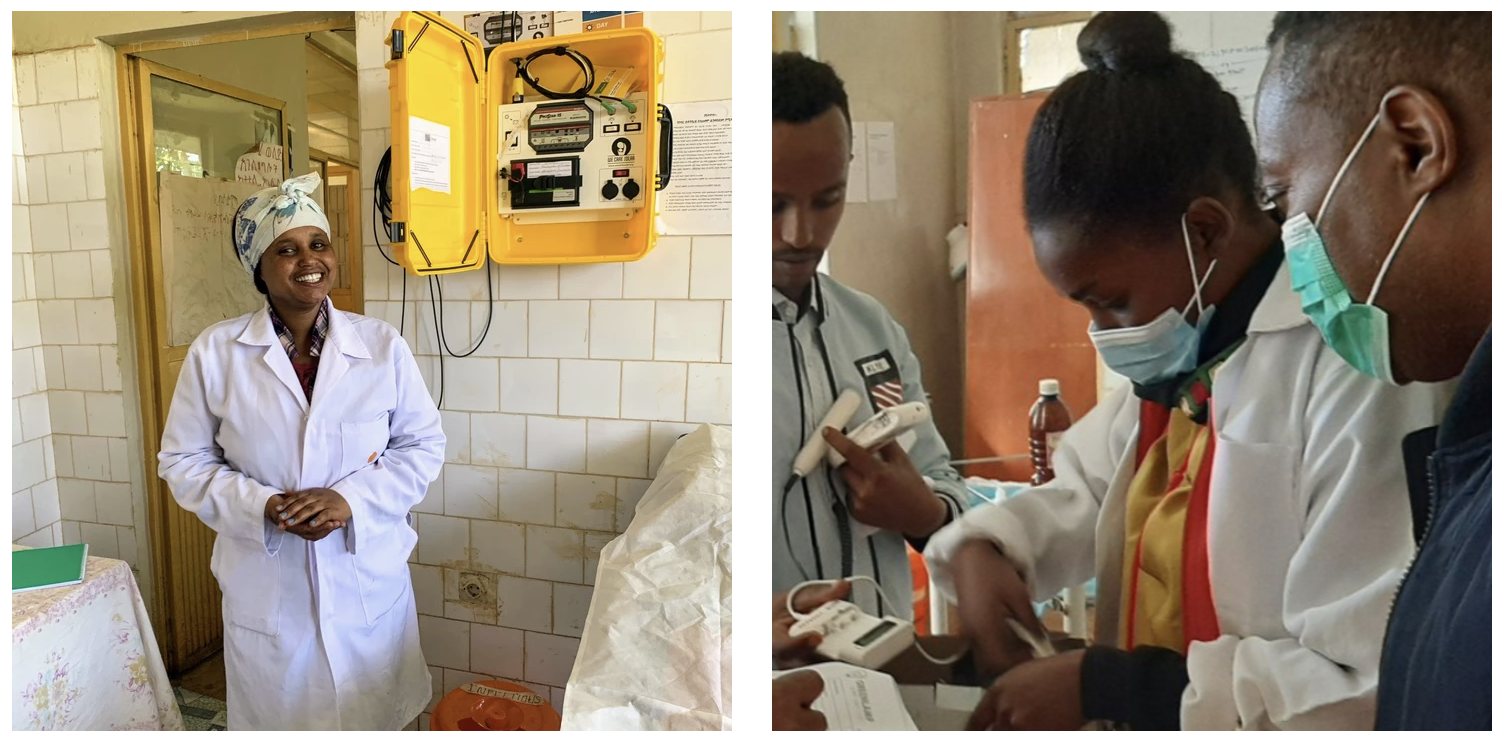
Lisbeth: Since 2012, GreenLamp has reached over one million women and touched the lives of five million people in rural Ethiopia. Tell us about your strategies LEARN, LIGHT and LEAD
Christina: I believe that it is crucial to work within areas where we can create the most impact with our projects.
LEARN: We are passionate about access to learning and believe that education and health are key to empowering women and girls in rural communities. It ensures a dignified life for the women, their families and communities and gives them strength and energy to put their forces together to create opportunities for a thriving future. Skilled and empathic midwives give the rural communities access to substantial and important health and delivery care.
LIGHT: Sustainable solar technologies that create an adequate and professional working environment for our midwives are essential to enable them to perform their prevention and often life-saving work. As you know, many births occur at night and, without light, the risks for a mother and her baby are very high. We are also committed to secure maintenance and supervision services for our solar systems so that they are available 24/7.
LEAD: As you know, we want to create equal opportunities for women and girls and we believe that a key to this is to create female role models and leaders. Our midwives working in rural areas, more often than not in very hardship conditions without access to running water and other supplies, are powerful role models for the women and girls in their communities. We support their leadership qualities by running interpersonal skills and leadership training for the final year students and we have initiated the Hamlin Midwives Alumni Network. The annual Alumni summit allows hundreds of graduated midwives who are deployed at different rural health centers to get together, exchange experiences and learn new skills. It encompasses further development training, up to date research and allows for the exchange of best practices at discussions among midwives.
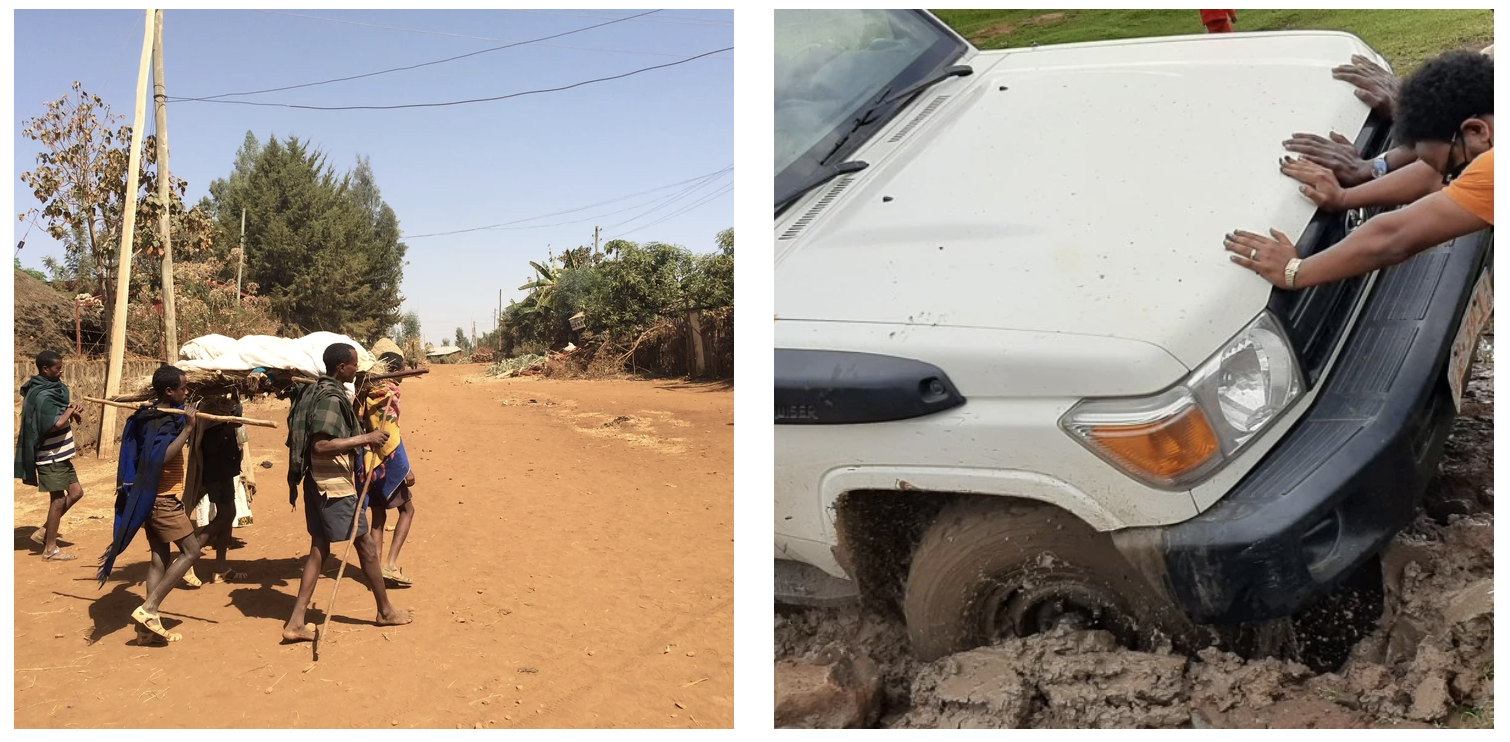
Lisbeth: What are some of the struggles you’re facing in running such an organization and how you deal with it?
Christina: I believe that every organization experiences successes and also faces some challenges. We started from scratch and have had a steep “learning by doing” curve. We are a 100% volunteer organization which is a challenge per se as everyone has different levels of resources that they can put in. What I am most proud about is that we have been able to attract amazing and dedicated women that are committed to work for their sisters in another part of the world, who have less resources at hand.
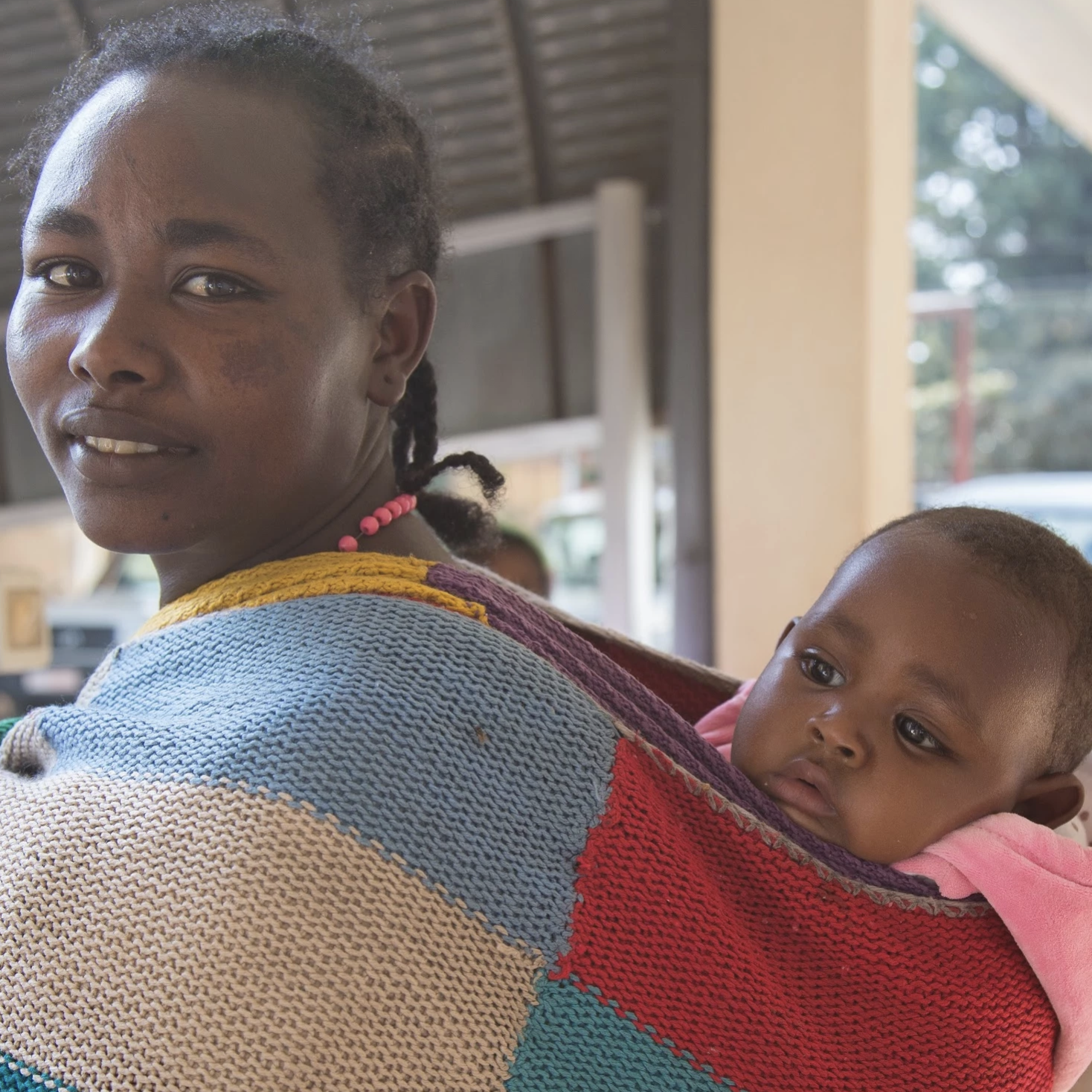
Lisbeth: You probably also have had many happy moments, but If you should point out ONE in particular, what would that be?
Christina: There are of course many happy moments but one in particular that happens over again, is when I meet students and midwives and they passionately tell me about their experiences. Last year when visiting rural health centers, I felt immensely inspired by the midwives telling me how they prevent unnecessary birth traumas. It always fills me with joy to see their delight in being able to be of such support for the mothers and babies in their care. This is what keeps me going and what I remind myself of in challenging times.
Lisbeth: What is your wish for the future for Green Lamp?
Christina: That we can continue our work for our sisters in Ethiopia in a way that is as impactful as possible. We want to give more young women the opportunity to fulfill their dreams to become midwives whilst making a lasting impact in rural communities, enabling them to thrive.
Lisbeth: What is your favorite thing to do on a day off?
Christina: I love practicing yoga and I also try to work on my professional and personal development and skills by reading non-fictional literature and participating in different training programs. To thoroughly relax, I enjoy reading crime novels or playing a round of golf.
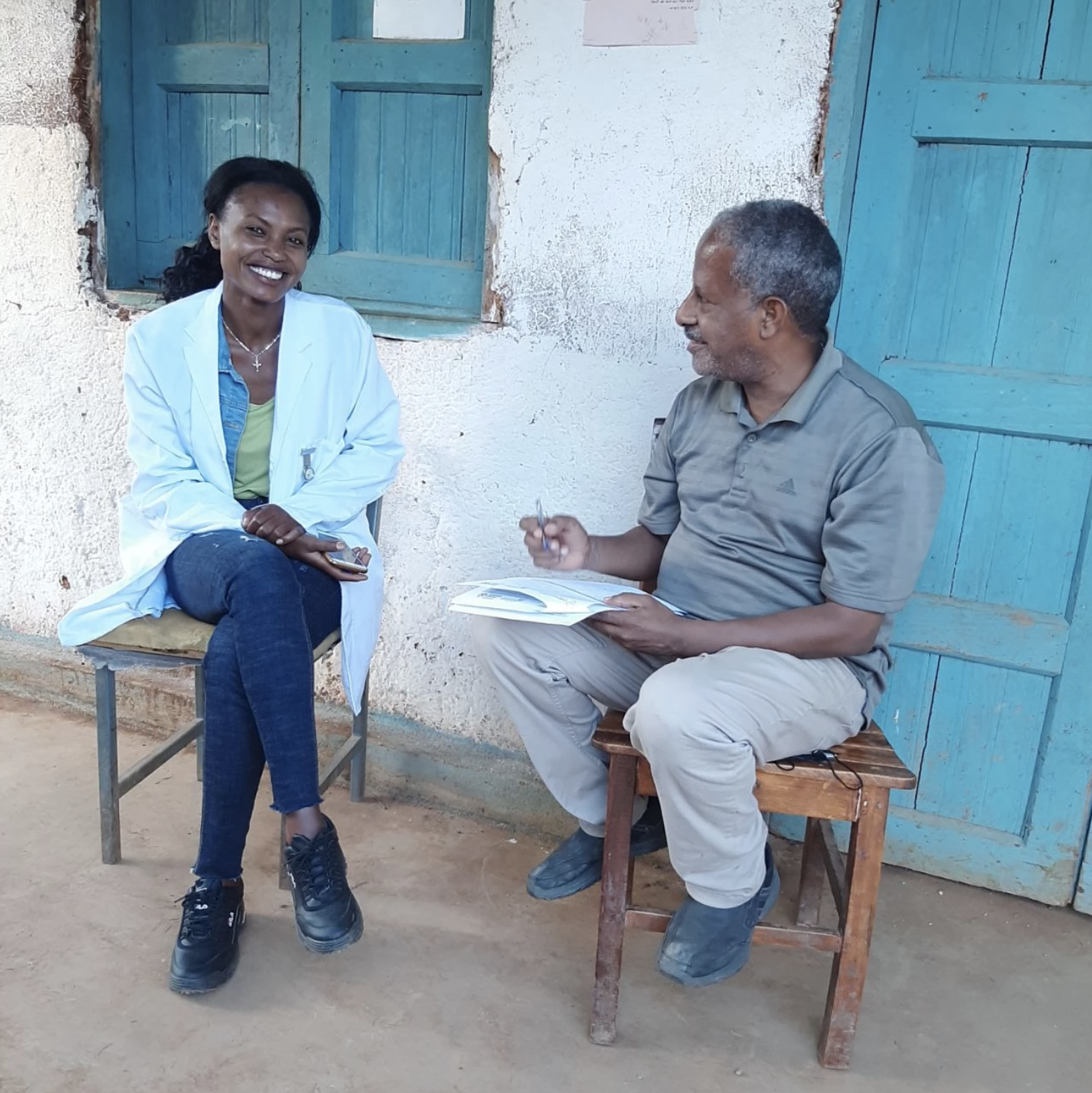
Lisbeth: What advice would you give to someone who wants to follow their dreams?
Christina: Let your passion guide you and embrace the opportunities that present themselves.
Lisbeth: Do you have a motto or saying that guides you?
Christina: Living by my values authenticity and peaceful coexistence, being courageous and joyful.
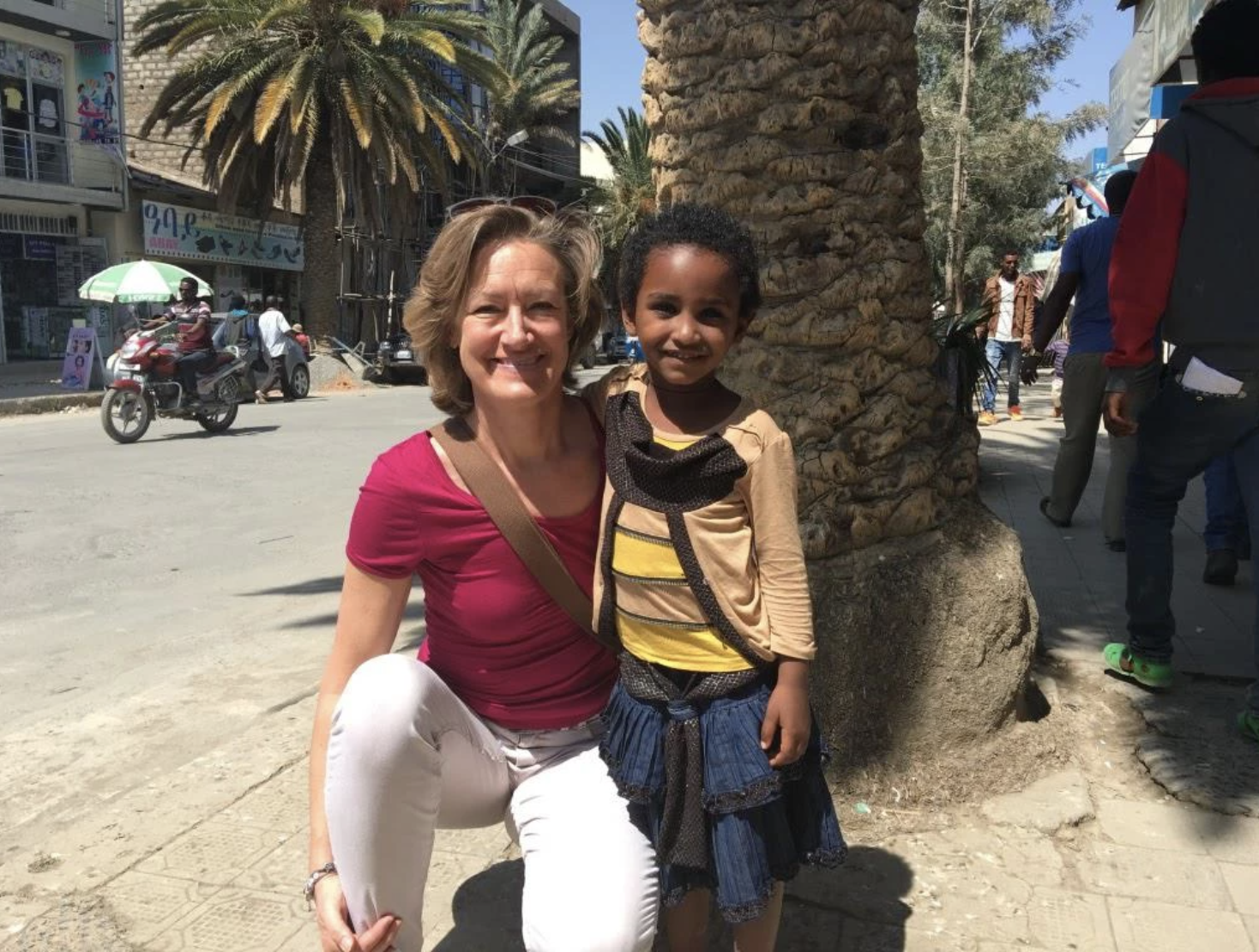
Lisbeth: Christina, you do a lot of amazing things for others, tell us what can we do to help you?
Christina: As you know, we are dependent on the generosity of people. If you want to make a difference in the lives of women and children in rural Ethiopia, you can make a contribution that will go directly to this important cause. We also welcome any skills and resources that can contribute to the realization of our goals.
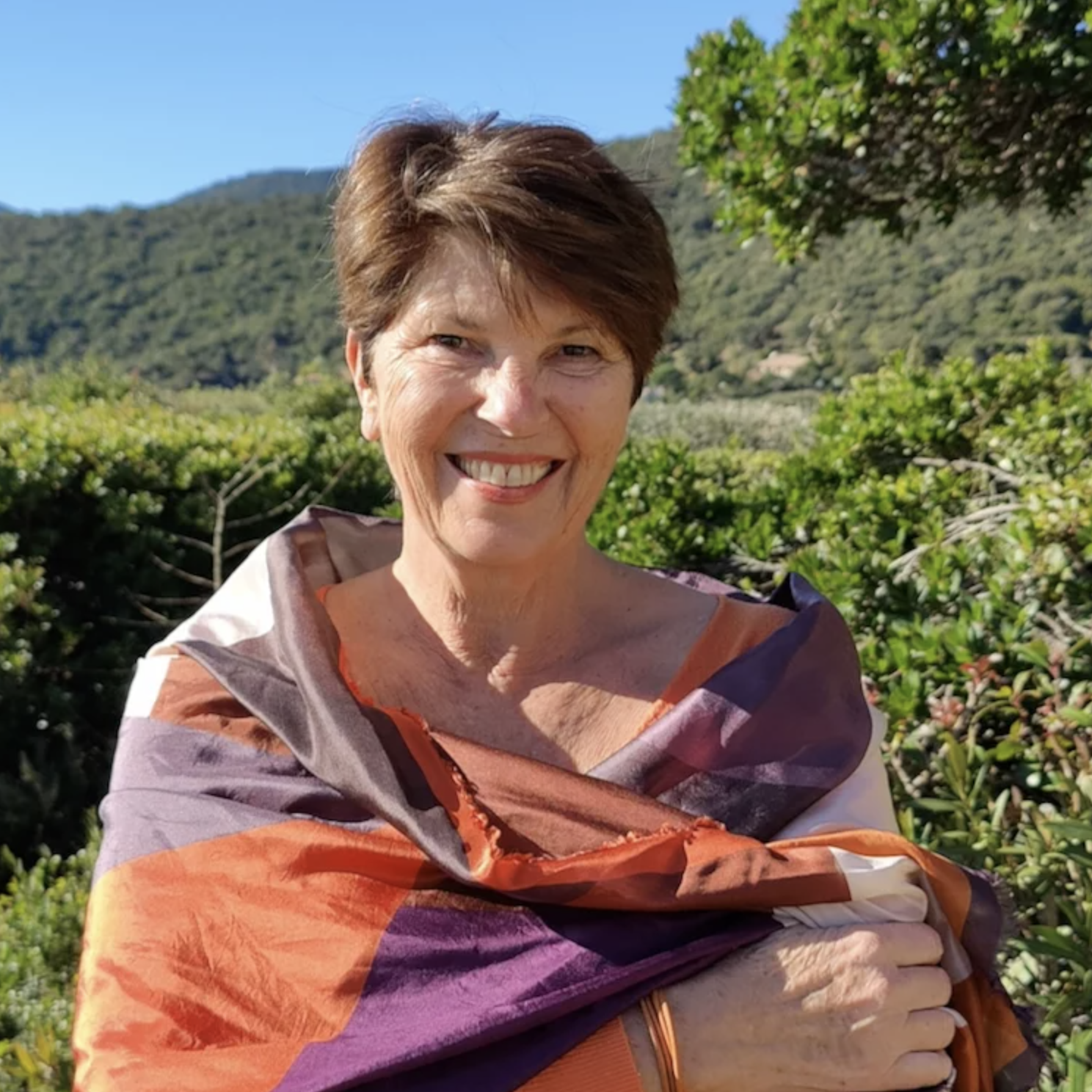
A Message from Lisbeth
Thank you so much Christina for taking the time to share your passion for the importance of female education in poor countries. I’m very honored to count you amongst the outstanding change makers of A WISH FOR HUMANITY.
We wish you all the best for GreenLamp and your future projects.
With much love,
Lisbeth
Post Views: 14
A WISH FOR HUMANITY
CONTACT:
For all questions regarding A WISH FOR HUMANITY, please contact Lisbeth Monéton: lisbeth@awishforhumanity.org
UPDATES AND STORIES
Receive our monthly news…
- © 2024 - A Wish for Humanity
- built with ❤️ dejalane web design
